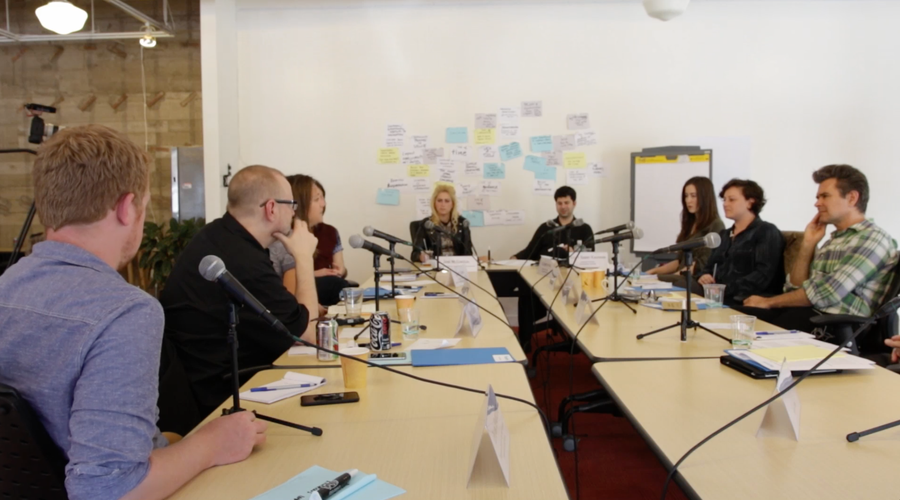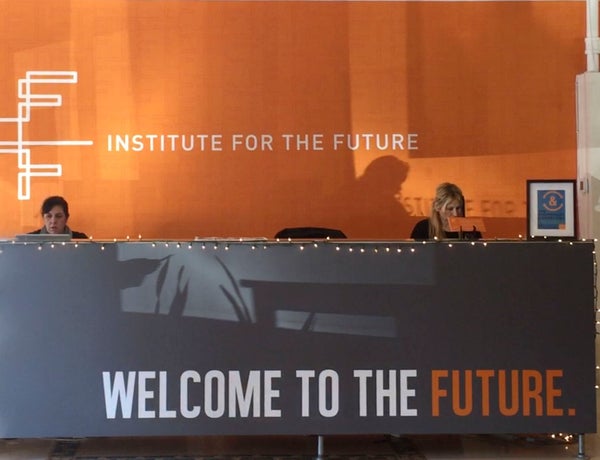This article was published in Scientific American’s former blog network and reflects the views of the author, not necessarily those of Scientific American
"Thinking about the future isn’t a special skill; virtually everyone does it all the time. We schedule future activities and appointments on our calendars. We make to-do lists, a promise to ourselves of how we will spend our future time and energy. We pack our bag (or pockets) for the day by fast-forwarding mentally to what we’ll need later. We look up the weekend’s weather. We make predictions about the outcomes of sporting events. We rehearse, practice, study and train for upcoming moments that matter to us. We daydream about events we’re eagerly looking forward to. We worry about others.
Most of this commonplace future thinking is about the near future: the next few minutes, hours, days, weeks, months or maybe even the next few years our lives. Few mental cycles, if any, are spent thinking about what our lives will be like, or what actions we should prepare to take, in the far future: ten years, twenty years, or even fifty years from now. This kind of far-future thinking is the domain of professional futurists.
Futurists are trained to imagine distant realities that to others seem implausible, or even impossible, today: technologies that don’t exist yet, dramatic changes to social norms or laws, detailed scenarios such as the strange pandemic most likely to infect us in the year 2031, or new forms of government that may unfold when space colonization becomes commonplace. Even if such possible futures can be interesting to consider, most lay people view them as little more than an intellectual curiosity. What is the practical purpose in contemplating a world thousands of tomorrows away, a world that may never actually come to pass, when there are so many pressing concerns right now?
Why indeed think about such far-off futures? Are there psychological and social benefits to imagining the world, and our lives, decades in advance? And if so, what does it take to become good at imagining the far future? How do you evaluate skill, success and impact? What obstacles might prevent someone from being able, or willing, to practice far-future thinking – and how can we help people overcome them?"
-- Jane McGonigal and Mark Frauenfelder
These were the fascinating questions that we recently explored at the Futurist Imagination Retreat organized by the Imagination Institute and the Institute for the Future (IFTF) in Palo Alto, California.

Credit: Scott Barry Kaufman
On supporting science journalism
If you're enjoying this article, consider supporting our award-winning journalism by subscribing. By purchasing a subscription you are helping to ensure the future of impactful stories about the discoveries and ideas shaping our world today.
Participants in the retreat included professional futurists Stuart Candy (an expert in experiential futures and director of Situation Lab); Jamais Cascio (one of Foreign Policy’s Top 100 Global Thinkers); Tessa Finlev (a specialist in peace and conflict resolution through futures thinking); Dylan Hendricks (the director of the annual Ten- Year Forecast at IFTF), Jane McGonigal (an expert in use of games to promote collaborative futures thinking), Sarah Smith (a research director at IFTF specializing in the future of food), and Kathi Vian (a distinguished fellow at IFTF with 42 years’ experience as a futurist). They were engaged in discussion by me and Elizabeth Hyde of the Imagination Institute, and blogger and journalist Mark Fraunfelder.
I was personally so inspired by the discussions, and learned a lot about how futurists imagine future scenarios. I was particularly struck by how prosocial the group was-- they specifically wanted to use their imaginations to make the world a better place. Another big takeaway for me was that this way of thinking is a skill that can be taught, and that society would benefit greatly if we all learned the valuable skills that enable us to think beyond what is to the many ways things could be.
Here are some highlights of the event:
You can read the full report here, prepared by Jane McGonigal and Mark Frauenfelder. Also, here's a neat write-up at BoingBoing, written by Mark Frauenfelder.
Thanks to Shakewell Studios for the video, and the John Templeton Foundation for their generous support of this retreat. You can find out more about the Imagination Institute and the other imagination retreats at http://imagination-institute.org.
